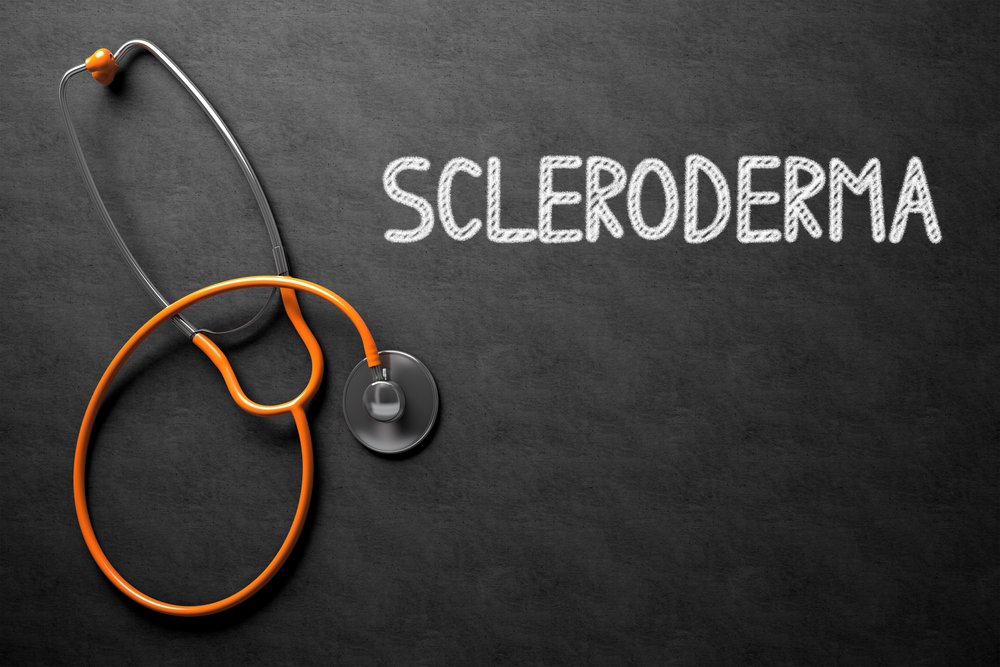Corbus to Begin Phase 3 Trial of Anabasum for Systemic Sclerosis Treatment

Corbus Pharmaceuticals of Norwood, Mass., will commence a single Phase 3 clinical trial evaluating Anabasum (formerly known as Resunab or JBT-101) to treat diffuse cutaneous systemic sclerosis (SSc).
This new study — which will support a New Drug Application (NDA) — is based on guidance provided by the U.S. Food and Drug Administration (FDA). The international, randomized, double-blind, placebo-controlled trial will enroll about 270 adults with SSc. Participants will receive Anabasum at 5 or 20 mg twice per day, or placebo twice a day.
The trial’s primary endpoint is the assessment of Anabasum’s therapeutic effect from baseline to week 52, as measured by the modified Rodnan skin score (mRSS), a measure of skin thickening and a validated clinical outcome in SSc. The first patient is expected to sign up in late 2017.
A previous Phase 2 trial (NCT02465437) evaluated the safety, efficacy and tolerability of Anabasum compared to placebo in 42 patients with SSc who had the disease for up to six years, and who were allowed to receive stable doses of immunosuppressive drugs during the trial.
In this study, Anabasum was given in different doses during the first month (5 mg once daily, 20 mg once daily, or 20 mg twice daily), after which patients received 20 mg twice daily for two months. At the end of the study, all patients were followed up from weeks 13 to 16.
Doctors evaluated improvement in SSc symptoms according to the American College of Rheumatology (ACR) Combined Response Index in the diffuse cutaneous Systemic Sclerosis (CRISS) score (a measure of improvement in SSc). The CRISS includes mRSS; physician global assessment; patient global assessment; forced vital capacity (a measure of lung function); and the Health Assessment Questionnaire–Disability Index).
Results from this Phase 2 study reported in November 2016 showed that 33 percent of Anabasum-treated patients scored significantly higher on the ACR CRISS, whereas placebo-treated patients had no changes. Anabasum also induced positive changes in the five individual domains of the CRISS score. No serious adverse events were reported from this trial.
Secondary outcomes of the new Phase 3 clinical trial will also include improvements in the ACR CRISS score.
“With the conclusion of a successful end-of-Phase 2 meeting with FDA, we believe we have a clear path forward to advance the clinical development of anabasum to support an NDA for the treatment of systemic sclerosis,” Barbara White, MD, chief medical officer of Corbus, said in a press release. “We are engaging the European Medicines Agency in similar discussions. We look forward to potentially providing systemic sclerosis patients with an effective therapeutic option for a disease for which there remains significant unmet medical need.”
Added Corbus CEO Yuval Cohen, PhD: “Successful execution of this trial is a top priority for Corbus. We believe we have the team and the capital to make this happen.”
Besides the new Phase 3 trial, the Phase 2 clinical trial is currently in its open-label extension period, in which Anabasum is being evaluated for 12 more months in the same SSc patients who took part in the first stage of the study. Anabasum is a synthetic, oral endocannabinoid-mimetic drug for inflammation treatment, thought to increase the production of anti-inflammatory mediators while reducing production of those that increase inflammation. Reducing inflammation helps to prevent permanent tissue damage in patient with SSc.
In January, the European Commission granted Anabasum orphan drug status for the potential treatment of SSc and cystic fibrosis; it has already won FDA Fast Track status to treat SSc.






